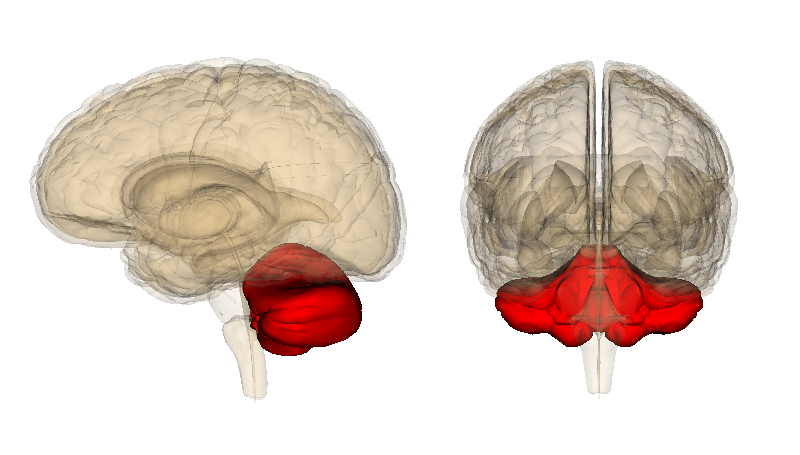Two years ago, the director of Switzerland's Blue Brain Project predicted that an artificial human brain would be possible within ten years. Since then, we have seen examples of artificial synapses and neural networks. In the latest step towards man-made brains, however, scientists from Israel's Tel Aviv University have restored brain function to a rat by replacing its disabled cerebellum with one that they created.
The cerebellum is located on the underside of the brain, beside the brain stem. It plays a large part in motor control, particularly as it applies to the coordination and timing of movements. Its fairly simple neuronal structure made it less challenging to replicate, as compared to other more complex regions of the brain.

The team, led by Professor of Psychobiology Matti Mintz, started by analyzing the sensory input signals that came into a rat's biological cerebellum from its brain stem, and the response signals that it put out in return. They were then able to replicate this signal-processing/transmitting function on a chip, which could be mounted outside the rat's skull and wired into its brain.
They then anesthetized the rat, disabled its own cerebellum, and mounted the chip on its head. Next, they tried to teach the still-anesthetized rat a conditioned motor reflex - they subjected the rat's eye to a puff of air accompanied by an audible tone, causing it to blink, with the idea that the rat would learn to blink its eye even when the tone was produced with no accompanying puff. While it could not learn this response when the chip was at first not connected to its brain, it was able to do so once the chip was wired in.
The chip was facilitating the same sort of response that the cerebellum would ordinarily handle.
Now, Mintz and his Tel Aviv team hope to replicate larger areas of the cerebellum, which would allow conscious test animals to learn whole sequences of response movements. It should prove challenging, as artefacts caused by the movements themselves can degrade the signal quality, although better software and improved implantation techniques could make up for that degradation.
Ultimately, the descendants of such chips could be used to restore or at least improve brain functions in stroke victims, or other people with brain damage. Mintz's collaborator, Robert Prueckl of Austria's Guger Technologies, believes that even brain parts such as the hippocampus or visual cortex should have artificial counterparts within several decades.
Source: New Scientist






